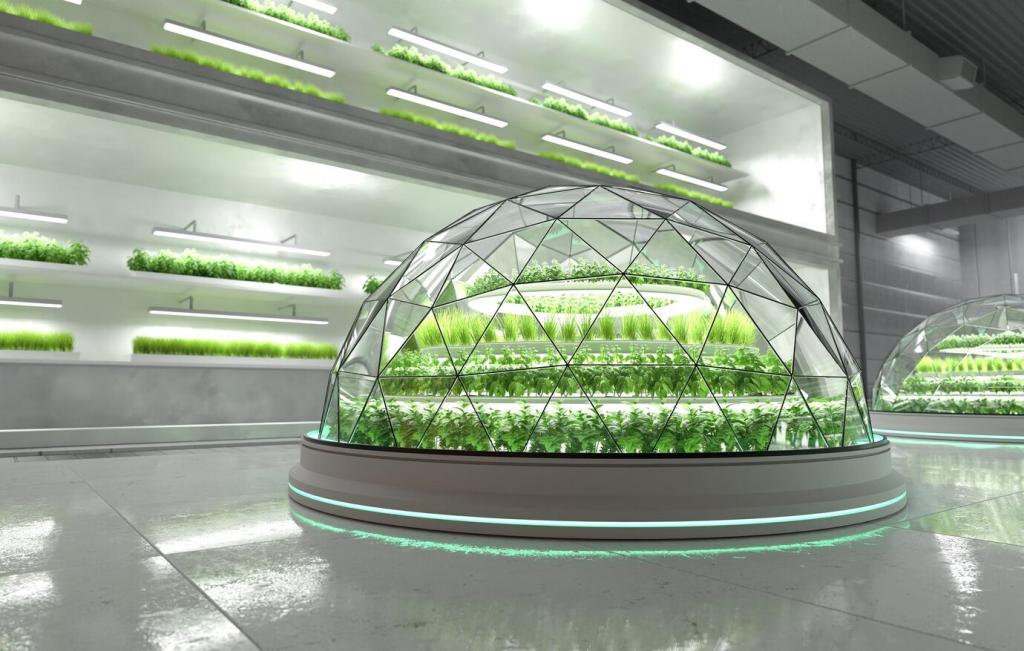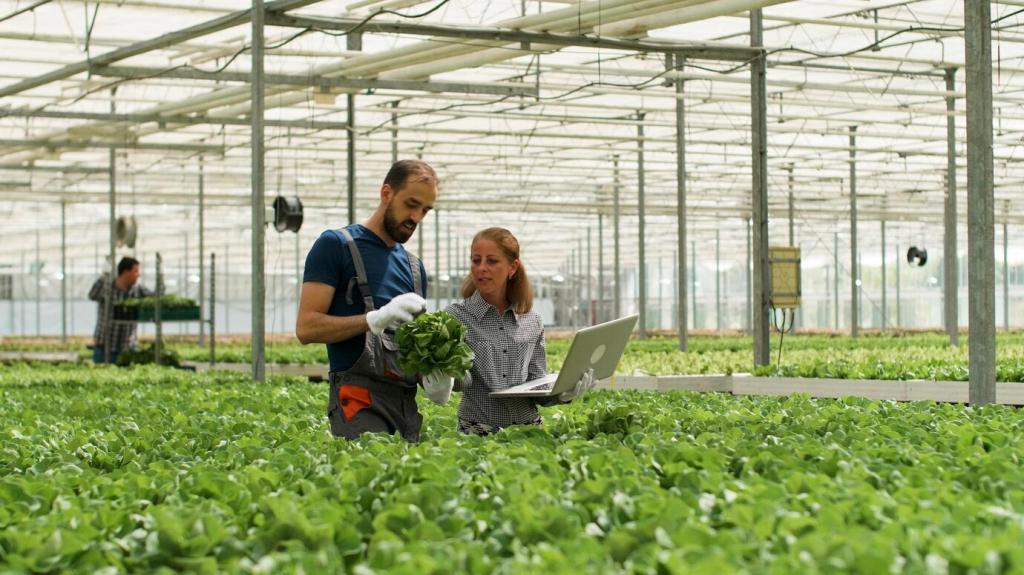
Future Trends in Urban Agriculture
Urban agriculture is rapidly evolving, pushing the boundaries of how we grow food within city environments. Driven by both necessity and innovation, this field is merging advanced technology, community engagement, and sustainable practices to create new urban ecosystems. As cities swell and climate concerns rise, the future of urban agriculture promises to reshape the relationship between people, food, and urban landscapes, offering scalable solutions for food security, environmental stewardship, and economic opportunity.
Previous
Next
Technological Integration in Urban Farming
Smart farming systems employ interconnected devices and sensors to monitor and automate every aspect of crop production. From soil moisture and nutrient levels to temperature and light conditions, every detail can be tracked in real-time and adjusted as necessary. This granular control enables urban farmers to maximize output while minimizing inputs like water, fertilizer, and energy. As these systems become more affordable, even small-scale urban growers will be able to leverage precision agriculture, reducing waste and strengthening the reliability of food grown within cities.
Community-Driven Urban Agriculture Models
Cooperative urban farms are emerging as vital models for democratizing food production in cities. These initiatives bring together local residents, pooling resources and knowledge to manage and operate urban farms collectively. Beyond producing fresh food, cooperatives foster a sense of ownership, build local leadership skills, and reinvest the benefits back into the community. This participatory approach also promotes transparency and accountability in urban food systems, ensuring that community needs and values are prioritized while driving sustainable development in rapidly changing urban environments.
Urban agricultural spaces are increasingly doubling as educational centers, where youth and adults alike learn about ecology, nutrition, and sustainable practices. School gardens, vocational training programs, and outreach initiatives empower city dwellers to reconnect with food origins and understand the importance of environmental stewardship. These experiential learning opportunities often extend beyond the garden, fostering healthier lifestyles and igniting interest in agricultural careers. Such initiatives address food literacy gaps, inspire youth to become future food leaders, and help bridge generational divides through shared hands-on experiences.
Social enterprises using urban agriculture as a platform are addressing food insecurity and unemployment while generating economic value. By creating jobs and entrepreneurial pathways, these organizations help marginalized populations gain critical skills and experience. Profits are often reinvested into community programs, infrastructure improvements, or expanding access to fresh produce. As these models proliferate, urban agriculture becomes an engine for socioeconomic resilience, promoting both inclusivity and long-term sustainability within the urban fabric.
Sustainability and Climate Resilience
Emerging trends in urban agriculture emphasize closed-loop systems where waste from one process becomes a resource for another. Composting organic waste, harnessing rainwater, and integrating aquaponics are just some examples of how urban farms are creating circular systems. These approaches reduce the reliance on external inputs and minimize environmental impact by ensuring that every resource is used efficiently. As cities seek ways to reduce landfills and conserve resources, these sustainability-driven designs will play an increasingly crucial role in urban food systems.

